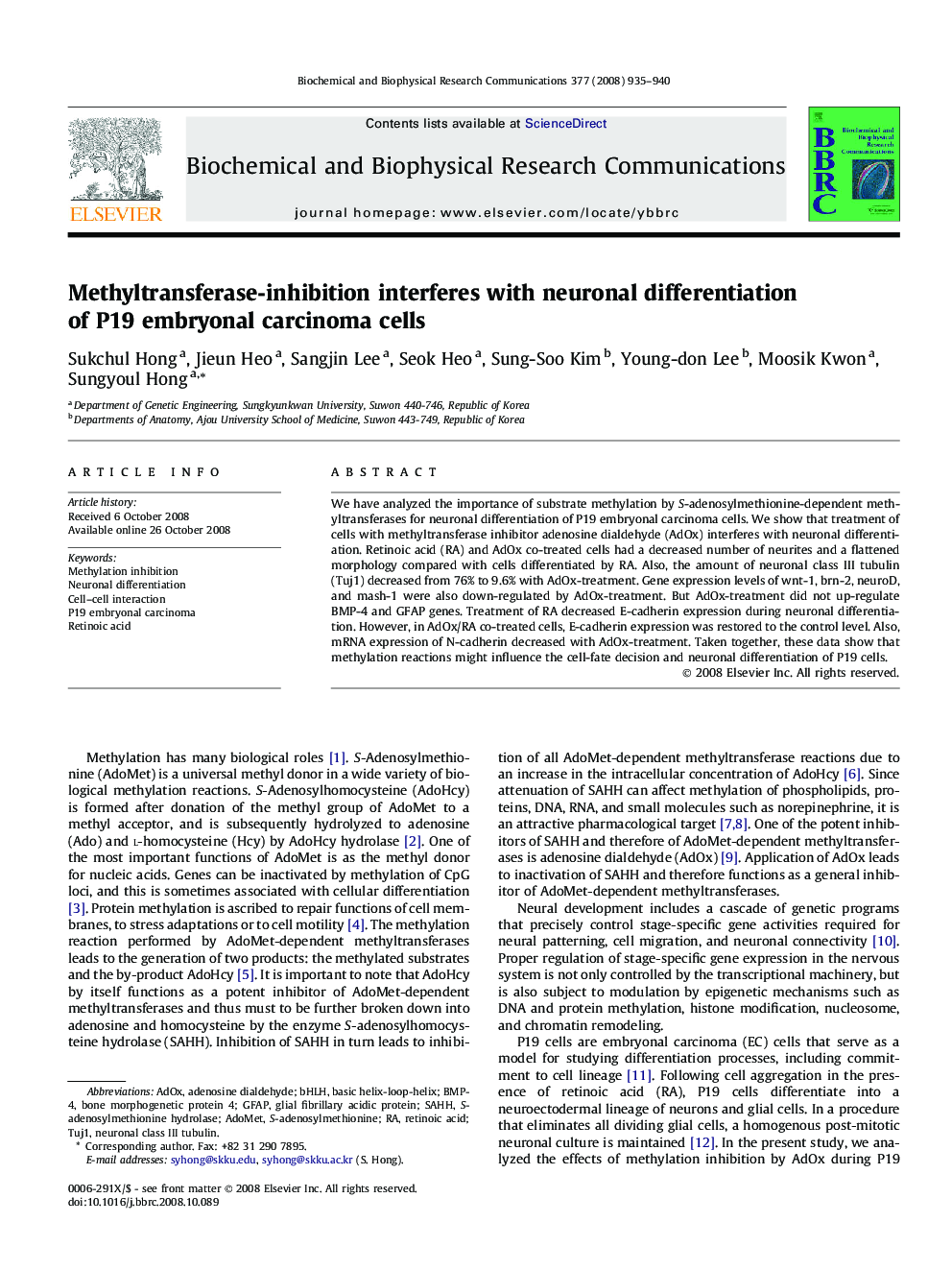| Article ID | Journal | Published Year | Pages | File Type |
|---|---|---|---|---|
| 1935254 | Biochemical and Biophysical Research Communications | 2008 | 6 Pages |
Abstract
We have analyzed the importance of substrate methylation by S-adenosylmethionine-dependent methyltransferases for neuronal differentiation of P19 embryonal carcinoma cells. We show that treatment of cells with methyltransferase inhibitor adenosine dialdehyde (AdOx) interferes with neuronal differentiation. Retinoic acid (RA) and AdOx co-treated cells had a decreased number of neurites and a flattened morphology compared with cells differentiated by RA. Also, the amount of neuronal class III tubulin (Tuj1) decreased from 76% to 9.6% with AdOx-treatment. Gene expression levels of wnt-1, brn-2, neuroD, and mash-1 were also down-regulated by AdOx-treatment. But AdOx-treatment did not up-regulate BMP-4 and GFAP genes. Treatment of RA decreased E-cadherin expression during neuronal differentiation. However, in AdOx/RA co-treated cells, E-cadherin expression was restored to the control level. Also, mRNA expression of N-cadherin decreased with AdOx-treatment. Taken together, these data show that methylation reactions might influence the cell-fate decision and neuronal differentiation of P19 cells.
Keywords
Related Topics
Life Sciences
Biochemistry, Genetics and Molecular Biology
Biochemistry
Authors
Sukchul Hong, Jieun Heo, Sangjin Lee, Seok Heo, Sung-Soo Kim, Young-don Lee, Moosik Kwon, Sungyoul Hong,
